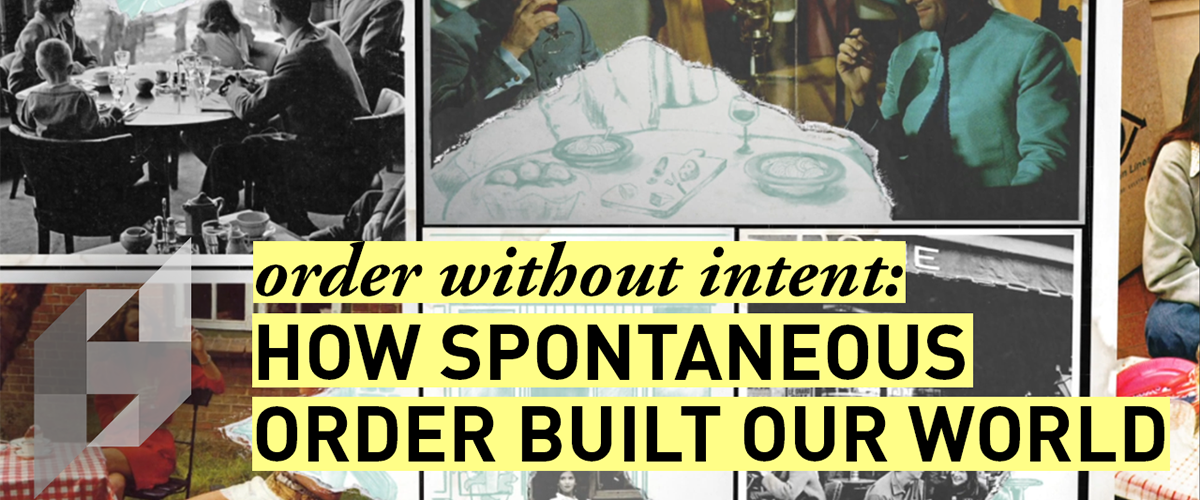How spontaneous order built our world
To explain one of the core classical liberal concepts, IHS offers a video exploring the theme of spontaneous order.
The video features Bruce Caldwell, professor of economics at Duke University, describing the role of spontaneous order in society. “Spontaneous orders are often contrasted with constructed orders,” Caldwell says. “The idea that you can have something that is not deliberately constructed, that is nonetheless beneficial, is quite a wonderful one.”
Caldwell explains that, despite some miscommunications across languages and cultures, emergent language is more effective than a universal language devised by experts.
In the late nineteenth century, Ludwig Zamenhof tried creating a universal language called “Esperanto.” The goal was to create an easy-to-learn language to promote international communication and cooperation. The language, however, never caught on.
Despite language barriers and misunderstandings, emergent language—that is, language that develops organically between individuals—is more effective than imposed language. When people come together with their own goals in mind, they learn how to communicate effectively over time.
Similarly, healthy markets develop from producers and consumers with dispersed knowledge coming together to achieve their goals. Spontaneously ordered markets communicate supply and demand through prices.
Friedrich Hayek recognized that wealth could only arise through bottom-up cooperation. He and other economists have expressed concern about experts believing they can improve market outcomes through direct intervention.
“Hayek once said that the most important use of reason is to understand its limitations,” Caldwell says. “And I think that is a very good message for experts.”
In the coming months, the Institute for Humane Studies will continue to release videos exploring various facets of the classical liberal tradition. You can view these videos, as well as other commentary, interviews, and ideas on core classical liberal concepts, civil discourse, and free speech, on our blog.
